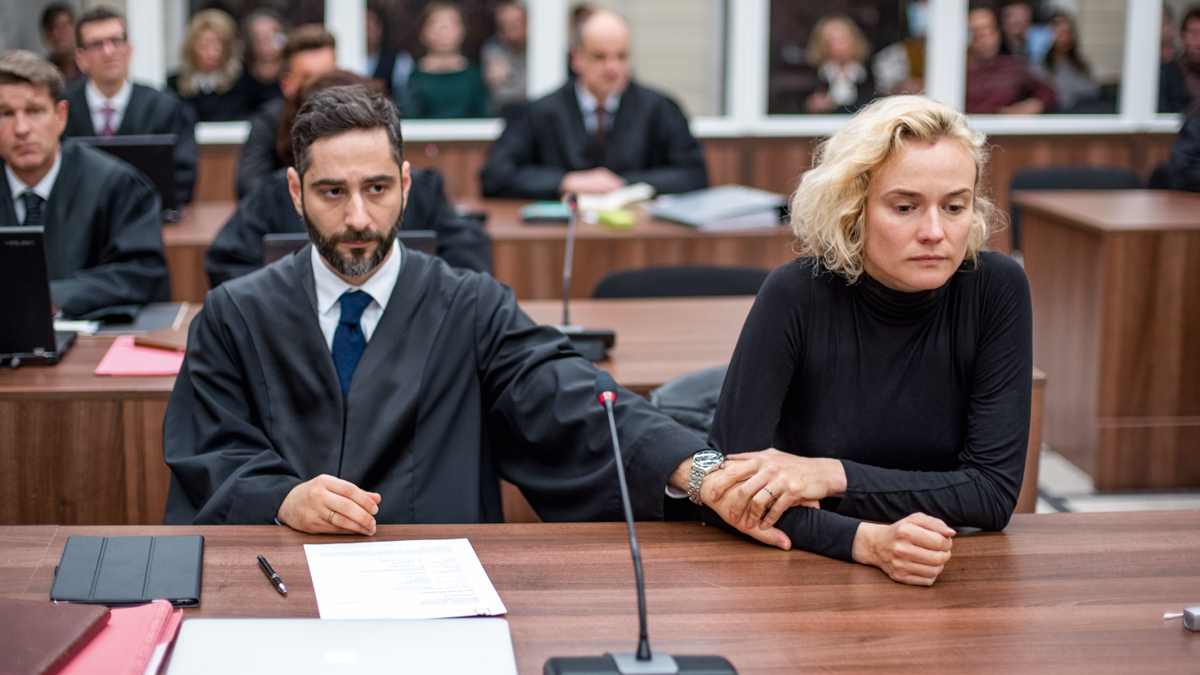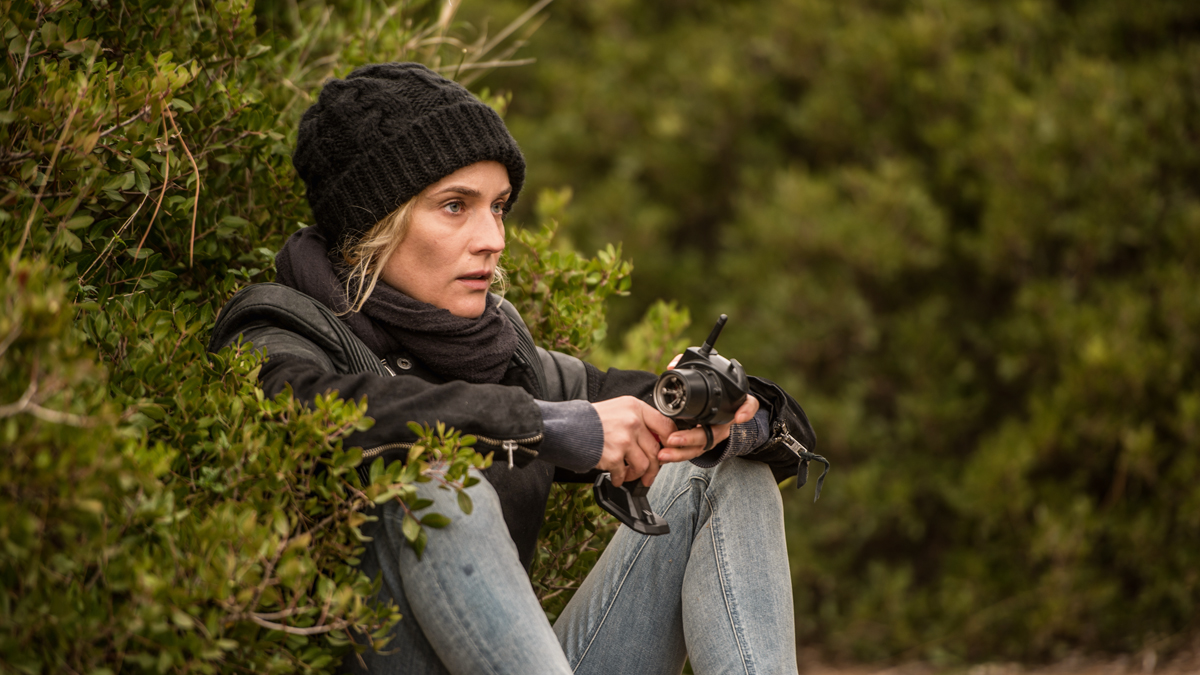Poignant and complex if occasionally frustrating, Fatih Akin’s In the Fade is the story of a marriage. Not a conventional one, as the director announces with a prologue in which white-suited Nuri (Numan Acar) struts through a lineup of wedding-day well-wishers to meet his much-tattooed bride, Katja (Diane Kruger). Nuri’s pals are fellow inmates, and the ceremony is performed in a prison classroom.
Nuri was a drug dealer, and Katja met him as a client during her college days. Years later, the couple has become more bourgeois. They have a six-year-old son, Rocco (Rafael Santana), and Nuri runs an office where he assists other people of Turkish and Kurdish origin with their taxes, the German language, and other complications of living in Hamburg.

This is familiar territory for Head-On director Akin, who’s of Turkish descent but was born in Hamburg. Many of his films are set in the city, and they often involve cross-cultural romance, drugs, and rock’n’roll. In the Fade is named for a song by Queens of the Stone Age, whose Joshua Homme composed the movie’s incidental music. The songs on the soundtrack come from several continents, but they’re all in English.
Akin divides the tale into three chapters, the first two of which are ironically titled. In “Family,” Katja returns from an excursion to find that her husband’s office was bombed. Nuri and Rocco are dead, and Katja must deal with her own grief was well as the demands and recriminations of her mother and in-laws.
The police arrive soon, which leads to part two, “Justice.” Set mostly in a courtroom, the chapter pits Katja and her loyal attorney (Denis Moschitto) against two neo-Nazis and their smirking counsel. (Co-writer Hark Bohm, a lawyer, was enlisted for this sequence.) The episode is fascinating, infuriating, and — when a forensic scientist describes Rocco’s injuries — harrowing.

The trial’s verdict disappoints Katja, which sets up the last part, “The Sea.” Newly inscribed with a tattoo of a samurai, the widow travels to Greece on the trail of the couple accused of killing Nuri and Rocco. She seeks revenge, but is ambivalent about her quest. That’s her problem. Akin’s is that any possible outcome indulges either vigilantism or despair (or perhaps both).




